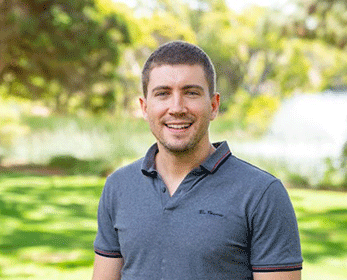Dr Marion Mundt from ECU's Nutrition & Health Innovation Research Institute (NHIRI) at the School of Medical and Health Sciences has been awarded a $238,000 Raine Priming Grant for her research Harnessing the power of AI on DXA images for predicting physical ability and its decline.
Dr Mundt is investigating the use of DXA images, or bone density scans, to estimate the physical ability trajectory of patients in order to promote lifestyle change and improve the quality of life.
"Our goal is to help older people stay independent for as long as possible. By analysing DXA images, we can look at key aspects of physical function, such as strength, balance and mobility, that not only support everyday movement but also enable people to remain socially active and engaged in their communities."
The Raine Research Committee awards Priming Grants to early-career researchers, supporting innovative projects across all areas of medical science. These grants fund research that explores the nature, causes and origins of human disease, while advancing new ways to prevent, treat and ultimately reduce their impact.
"I'm absolutely thrilled to receive this fellowship. To be recognised in an area I only began working in about a year ago is a huge step forward, and it wouldn't have been possible without the incredible support and belief of my mentors, Dr Marc Sim and Professor Josh Lewis," Dr Mundt said.
"This grant marks my first step towards becoming an independent researcher, and I'm excited about the opportunity to contribute to health research in a way that can make a real difference."
Dr Benjamin Parmenter, also from NHIRI, has also been awarded a $193,790 Raine Priming Grant for his research project Can higher flavonoid diversity keep the doctor away?
Dr Parmenter's work focuses on the impact flavonoids, and more specifically a diverse range of flavonoids, has on the human body.
"This funding is a tremendous boost for our research team," Dr Parmenter said.
"It opens the door for us to push our research on flavonoids into new and exciting territory, with the potential to uncover insights that could shape future approaches to nutrition and health. This support means we can broaden our experiments and generate evidence that moves the field forward."
Dr Parmenter was also awarded a $5,000 Raine Research Prize and a medallion for his paper High diversity of dietary flavonoid intake is associated with a lower risk of all-cause mortality and major chronic disease.
Meanwhile, Dr Myles Murphy, also from the NHIRI, has been awarded the Raine Research Prize valued at $5,000 and a medallion for his article TENDINopathy Severity assessment-Achilles.
The research conducted by Dr Murphy developed an assessment tool for Achilles tendon pain, the TENDINS-A. The assessment was developed with the input of people with Achilles tendon pain, as well as expert healthcare providers and researchers from around the world and is currently being translated into 11 different languages worldwide.
"The TENDINS-A is a game changer in how we determine how severe a person's Achilles tendon pain is," Dr Murphy said.

 The Raine funding will assist in furthering health research at ECU.
The Raine funding will assist in furthering health research at ECU.





